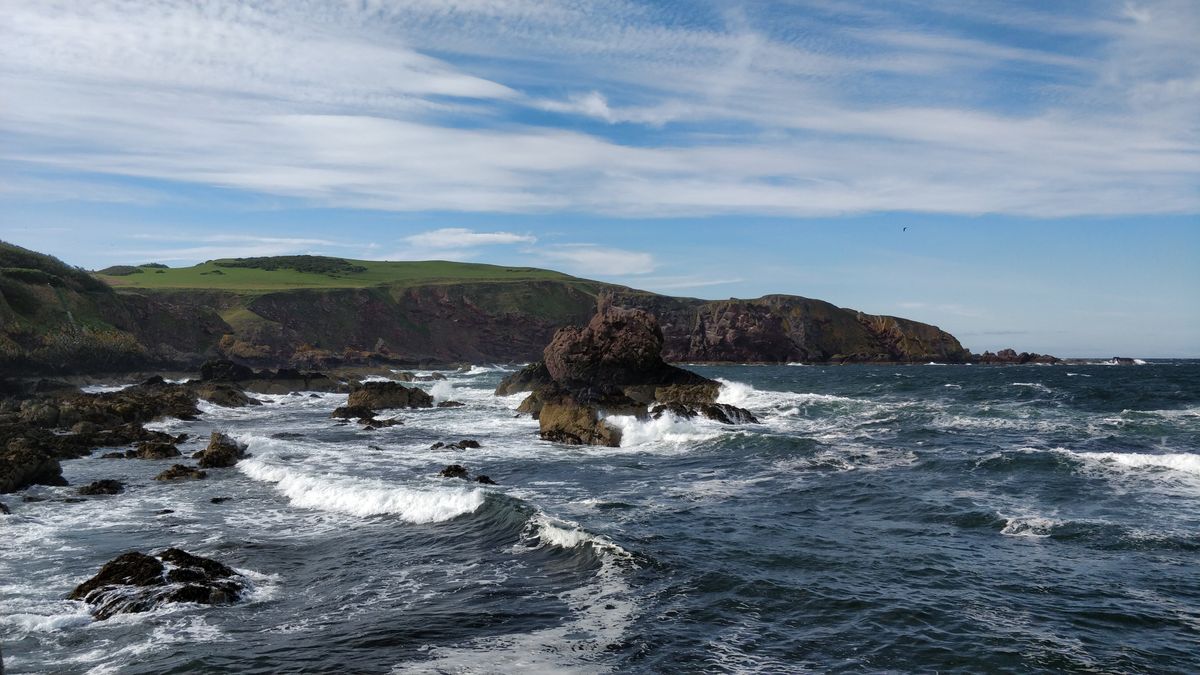The Seaflower
The Seaflower was one of five Coldingham fishing boats caught in a storm on the 18th November 1835. Only four returned.

The Seaflower was one of five Coldingham fishing boats caught in a storm on the 18th November 1835. Only four returned.
The following article comes from the London Evening Standard, Tuesday 24 November 1835, syndicated from the Berwick and Kelso Warder.
BOAT LOST AND SIX MEN DROWNED.— On Wednesday morning the 18th inst., five of the fishing boats from Coldingham, while out at sea, were overtaken by a violent storm. The crew drew in their nets with all speed, double-reefed their sails, used every precaution which the most experienced seamanship could suggest, and stood for the nearest port. All the boats reached the harbours of Eyemouth and Burnmouth, with splintered masts and torn sails, except the Seaflower. She had been observed by her companion in distress but a few yards ahead, struggling with the tempest. A wave intercepted the view; they looked again - a solitary oar floated on the waters! Her crew consisted of an able and experienced skipper, and five young men, the flower of the village. The following are the names of the men lost, viz:- Peter Johnson, skipper, unmarried, cousin of Robert and Aleck; John Wilson, senior, left a widow; John Wilson, junior, son of the above, left a widow and one child - wife far advanced in pregnancy; David Cormack, Robert Johnson, and Alexander Johnson, brothers, single men.
The story was revisited in 1939, when an Eyemouth Town Council employee found a poem about the event. This was reported in the Berwickshire News and General Advertiser, Tuesday 11 April 1939:
A sea tragedy at St Abbs 104 years ago, in which a crew of local fishermen, including a father and son and two brothers perished, was brought light the other day by the discovery of a faded piece of paper by an Eyemouth man. Walking on Eyemouth Fort, William Gillie, an employee of Eyemouth Town Council, picked up a piece of paper which showed signs of great age. Printed in verse was the pathetic story of how the fishing-boat Sea Flower had been lost with her crew on 18th November 1835, and judging by the date at the foot of the poetry, it had apparently been written on the day following the tragedy.
The names of the crew were given as follows: John Wilson, senior, and John Wilson, junior, father and son; Robert and Alexander Johnstone, brothers; Peter Johnstone, cousin to above; and Alexander Cormack.
The poem, which gives a poignant description of how a floating mast and oar revealed the disaster, is as follows:
On the Loss of a Coldingham Boat and Six Fishermen During the Gale of 18th November 1835.
Gaily they parted from the shore,
Gaily they plied the dipping oar,
Six handy men—the Sea Flower’s crew,
Went forth upon the waters blue;
November’s sun shook off his clouds,
To gild their sails and dry their shrouds,
And the broad sea stretched calm and wide
Her calm, and deep and treacherous tide;
As o'er her breast in slumber hushed,
Their bark with slumbering ripple brushed
All firm foot, and strong of arm,
And light of heart, nor dreading harm;
And as the sun rose high and gay,
Perchance they trolled some fishers’ lay —
Such lays sweetest measure keep
With every stroke that cuts the deep,
But quickly filed the swelling sail,
And keenly blew the rising gale,
And breaking waves around them dashed,
Their bark’s low sides they steeped and lashed,
Their nets were thrown, their lines were cast,
When sudden frown’d the wak’ning blast,
And reared the heaving billows high,
With culling crest to meet the sky.
As the red waves of old looked down
From fearful height Egypt’s crown,
Wild roared the wind, fierce raged the wave,
A mountain here and there a grave.
Yet ’mid the terrors of the gale
The fishers’ hearts might scorn to quail;
No eye beheld the watery grave
Close o'er the bark and o’er the brave.
But floating mast and oar revealed
The tale that could not concealed.
Suspicion came upon the blast,
And village whispers caught it fast;
From voice to voice with faltering breath,
Passed on the stunning tale death;
And doubt to fearful surety grew
As round and round the rumour flew.
And mourners hast’ rung to the shore,
Can now behold the lost no more,
Long may the tear fall fast and free,
For loved ones buried in the sea;
And many a tear may yet be shed,
Before that sea shall yield her dead.
(Coldingham shore being the old name for St Abbs, the Sea Flower is described in the title of the poem as belonging to Coldingham).
